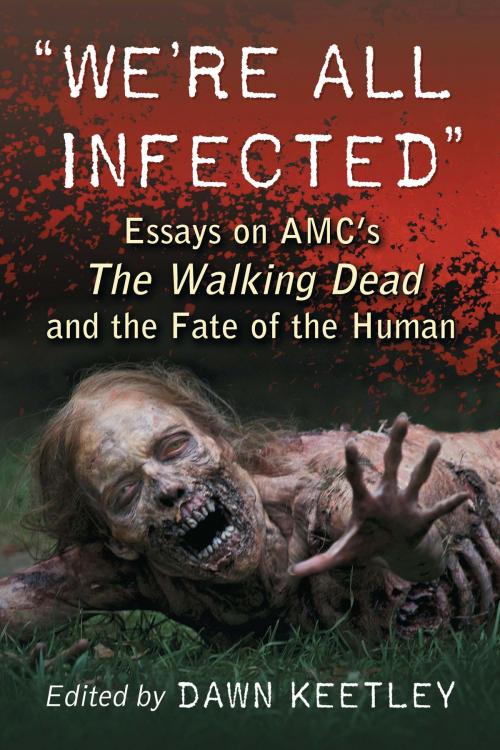"We're All Infected"
Essays on AMC's The Walking Dead and the Fate of the Human
Nonfiction, Entertainment, Television, Performing Arts| Author: | ISBN: | 9781476614526 | |
| Publisher: | McFarland & Company, Inc., Publishers | Publication: | February 7, 2014 |
| Imprint: | Language: | English |
| Author: | |
| ISBN: | 9781476614526 |
| Publisher: | McFarland & Company, Inc., Publishers |
| Publication: | February 7, 2014 |
| Imprint: | |
| Language: | English |
This edited collection brings together an introduction and 13 original scholarly essays on AMC’s The Walking Dead. The essays in the first section address the pervasive bloodletting of the series: What are the consequences of the series’ unremitting violence? Essays explore violence committed in self-defense, racist violence, mass lawlessness, the violence of law enforcement, the violence of mourning, and the violence of history. The essays in the second section explore an equally urgent question: What does it mean to be human? Several argue that notions of the human must acknowledge the centrality of the body—the fact that we share a “blind corporeality” with the zombie. Others address how the human is closely aligned with language and time, the disappearance of which are represented by the aphasic, timeless zombie. Underlying each essay are the game-changing words of The Walking Dead’s protagonist Rick Grimes to the other survivors: “We’re all infected.” The violence of the zombie is also our violence; their blind drives are also ours. The human characters of The Walking Dead may try to define themselves against the zombies but in the end their bodies harbor the zombie virus: they are the walking dead. Instructors considering this book for use in a course may request an examination copy here.
This edited collection brings together an introduction and 13 original scholarly essays on AMC’s The Walking Dead. The essays in the first section address the pervasive bloodletting of the series: What are the consequences of the series’ unremitting violence? Essays explore violence committed in self-defense, racist violence, mass lawlessness, the violence of law enforcement, the violence of mourning, and the violence of history. The essays in the second section explore an equally urgent question: What does it mean to be human? Several argue that notions of the human must acknowledge the centrality of the body—the fact that we share a “blind corporeality” with the zombie. Others address how the human is closely aligned with language and time, the disappearance of which are represented by the aphasic, timeless zombie. Underlying each essay are the game-changing words of The Walking Dead’s protagonist Rick Grimes to the other survivors: “We’re all infected.” The violence of the zombie is also our violence; their blind drives are also ours. The human characters of The Walking Dead may try to define themselves against the zombies but in the end their bodies harbor the zombie virus: they are the walking dead. Instructors considering this book for use in a course may request an examination copy here.















